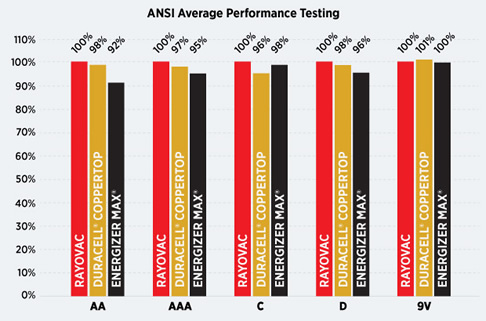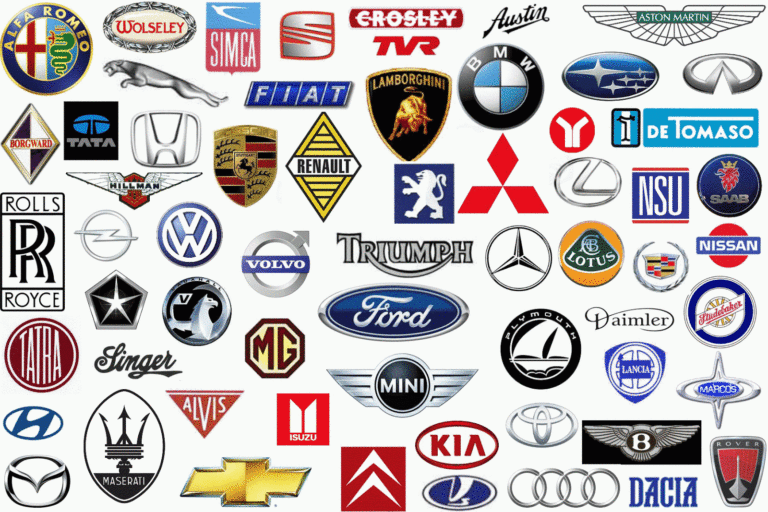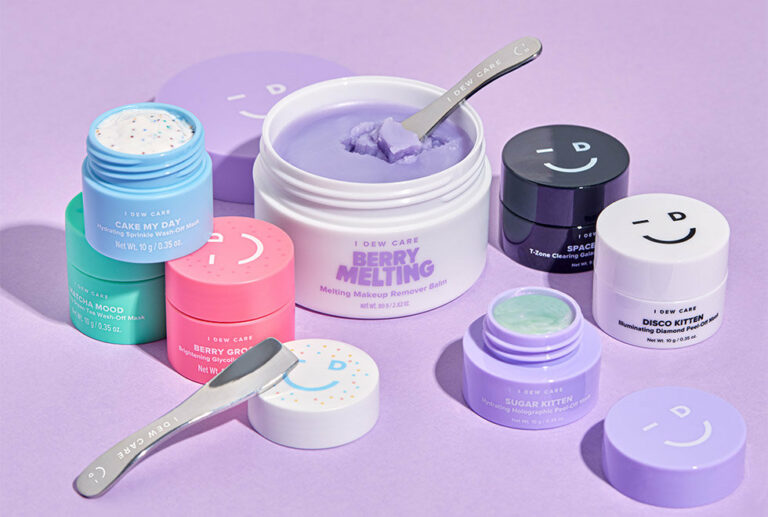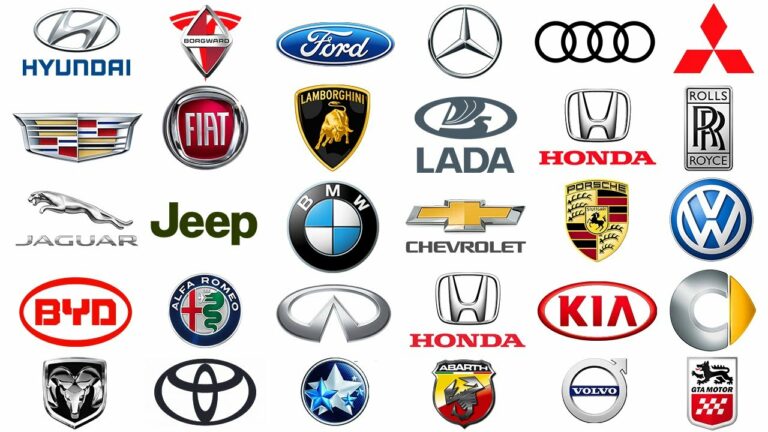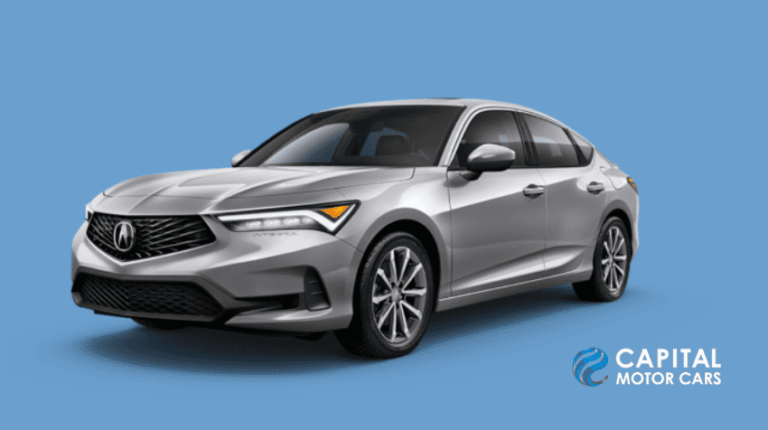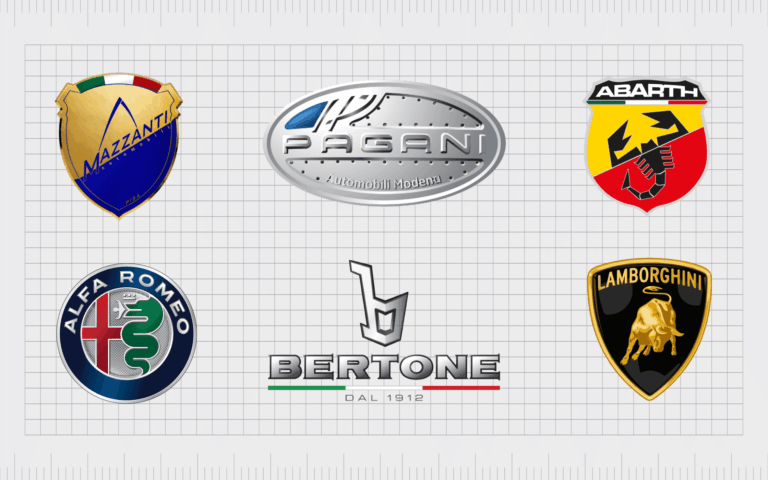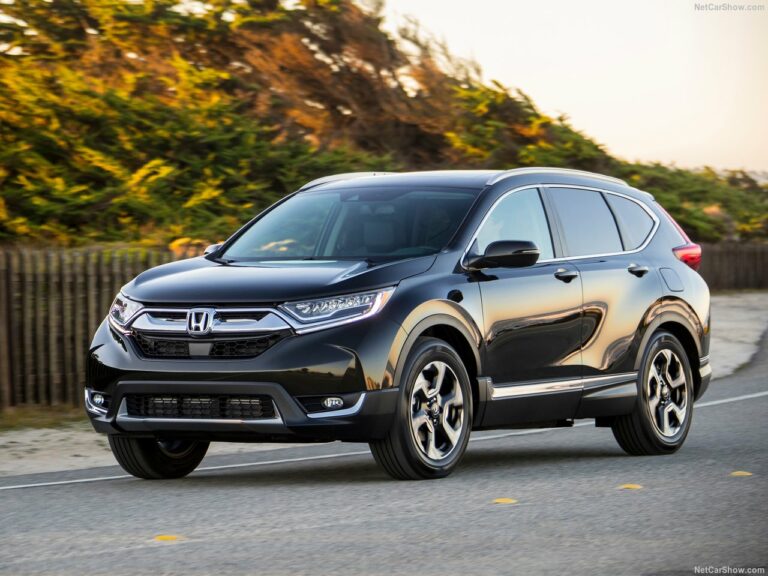What Car Brands Last The Longest
What Car Brands Last The Longest cars.truckstrend.com
In an era of increasing financial consciousness and environmental awareness, the question of which car brands last the longest has never been more relevant. Owning a vehicle that reliably serves you for years, even decades, isn’t just about saving money; it’s about reducing your environmental footprint, building trust in your investment, and experiencing true peace of mind on the road. A long-lasting car minimizes depreciation, reduces the frequency of new car purchases, and often translates to lower overall ownership costs over its lifetime. But what exactly makes a car brand endure, and which names consistently rise to the top when it comes to longevity? This comprehensive guide will delve into the factors contributing to vehicle lifespan, highlight the brands renowned for their durability, and provide actionable advice to ensure your next car goes the distance.
The Anatomy of Automotive Longevity: What Makes a Car Last?
What Car Brands Last The Longest
The ability of a car to withstand the test of time is a complex interplay of various factors, originating from the design phase all the way through to owner habits. Understanding these elements is crucial to identifying truly long-lasting vehicles.
- Engineering and Design Philosophy: At the core of a durable car lies robust engineering. Brands known for longevity often prioritize tried-and-true technologies over cutting-edge, unproven innovations. They focus on simplicity, ease of repair, and the use of high-quality, durable components that can withstand repeated stress and varying environmental conditions. Over-engineering critical components like the engine, transmission, and chassis contributes significantly.
- Manufacturing Quality and Materials: The precision with which a car is assembled and the quality of materials used play a vital role. Brands that invest in superior steel, rust-resistant coatings, high-grade plastics, and meticulously built powertrains generally produce more resilient vehicles. Strict quality control processes during manufacturing minimize defects that could lead to premature failure.
- Powertrain Reliability (Engine & Transmission): The heart and soul of any vehicle are its engine and transmission. Brands that consistently produce reliable, well-tested powertrains are often at the top of longevity lists. These components are designed to perform efficiently and consistently for hundreds of thousands of miles with proper maintenance. Simpler, naturally aspirated engines, for instance, often prove more durable than highly complex turbocharged units with many potential points of failure.
- Availability and Affordability of Parts: Even the most reliable car will eventually need replacement parts. Brands with a wide network of dealerships and aftermarket parts suppliers, offering reasonably priced components, make it easier and more cost-effective for owners to maintain their vehicles for extended periods. This infrastructure supports longevity by making necessary repairs feasible.
- Owner Maintenance and Driving Habits: While the manufacturer lays the groundwork, the owner completes the picture. Regular, diligent maintenance (oil changes, fluid checks, tire rotations, timely repairs) is paramount. Aggressive driving, neglecting warning signs, or skipping scheduled services can significantly shorten even the most robust car’s lifespan.
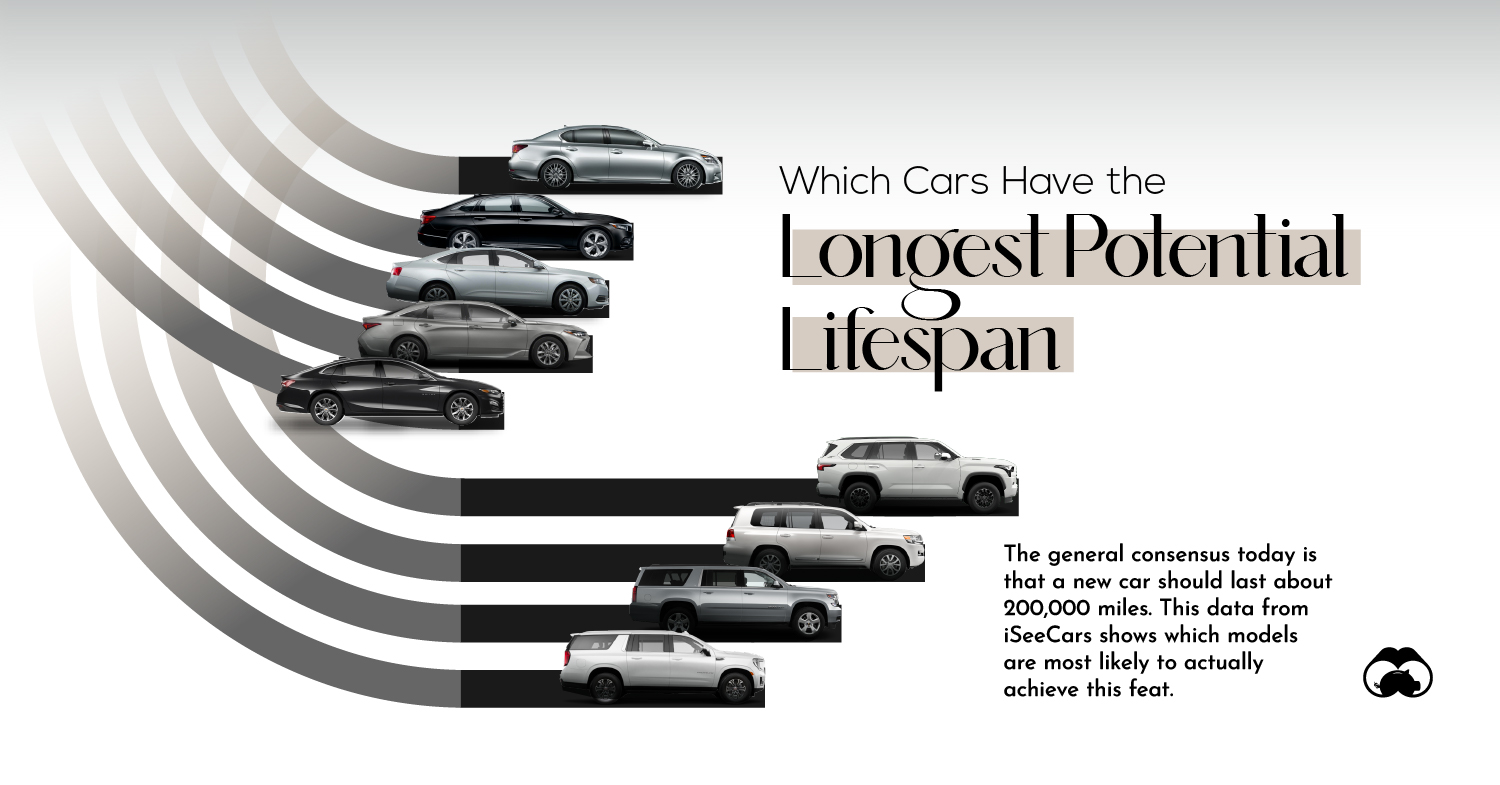
The Reigning Champions: Car Brands Known for Lasting Longest
When we talk about automotive longevity, certain names consistently emerge at the top of reliability and lifespan studies. These brands have built their reputation on producing vehicles that reliably reach high mileage markers.
- Toyota: Universally acknowledged as a leader in durability and reliability, Toyota vehicles, including their luxury division Lexus, are often cited as the longest-lasting cars on the road. Their commitment to the "Toyota Production System" (TPS) emphasizes quality control and continuous improvement. Models like the Camry, Corolla, RAV4, and Tacoma are famous for exceeding 200,000 or even 300,000 miles with proper care. Their hybrid systems, particularly in the Prius, have also proven remarkably durable.
- Honda: Another Japanese giant, Honda, rivals Toyota in terms of reliability and longevity. Known for their refined engines and robust engineering, Honda vehicles like the Civic, Accord, CR-V, and Odyssey frequently achieve impressive mileage. Their VTEC engines are particularly renowned for their durability and efficiency.
- Subaru: While perhaps not as widespread as Toyota or Honda, Subaru has carved out a niche for itself with its symmetrical all-wheel-drive systems and Boxer engines. Owners often report high mileage, especially with models like the Outback and Forester. Their commitment to safety and robust construction contributes to their longevity.
- Mazda: In recent years, Mazda has significantly improved its reliability ratings, moving towards premium feel without sacrificing durability. Their Skyactiv technology, focusing on efficiency and engineering simplicity, has resulted in highly reliable engines and transmissions. Models like the Mazda3 and CX-5 are increasingly recognized for their long-term dependability.
- Lexus (Toyota’s Luxury Arm): As Toyota’s luxury division, Lexus inherits the same legendary reliability and build quality. Lexus vehicles consistently top reliability surveys, offering a luxurious experience without the typical high maintenance costs often associated with luxury brands. Their engines and transmissions are designed for extreme longevity, making models like the RX and ES common sights even after many years and miles.
- Acura (Honda’s Luxury Arm): Similar to Lexus, Acura benefits from Honda’s engineering prowess. They offer a blend of performance and luxury with robust powertrains. Models like the MDX and TLX are known for their ability to rack up miles reliably.


It’s important to note that while these brands generally excel, individual models within their lineup may vary. Researching specific models is always advisable.
Maximizing Your Car’s Lifespan: Practical Advice for Longevity
Even the most robust car won’t last without proper care. Your habits as an owner are just as critical as the manufacturer’s build quality.
- Adhere to the Maintenance Schedule: This is the golden rule. Follow your car’s owner’s manual for all recommended services – oil changes, fluid flushes (transmission, brake, coolant), filter replacements (air, cabin, fuel), spark plug changes, and timing belt/chain inspections. Preventative maintenance catches small issues before they become catastrophic.
- Regular Fluid Checks: Engine oil, transmission fluid, brake fluid, power steering fluid, and coolant are your car’s lifeblood. Check them regularly and top them off or change them as needed. Dirty or low fluids can cause significant wear and tear.
- Monitor Your Tires: Proper tire inflation, rotation, and alignment not only improve fuel economy and safety but also reduce strain on your suspension components and drivetrain.
- Listen to Your Car: Pay attention to unusual noises, smells, or warning lights. Addressing minor issues like a squealing belt or a check engine light promptly can prevent costly repairs down the line.
- Drive Smart: Avoid aggressive driving habits like rapid acceleration, hard braking, and frequent short trips (which don’t allow the engine to reach optimal operating temperature). Smooth driving reduces wear and tear on the engine, transmission, brakes, and suspension.
- Keep it Clean: Regular washing and waxing protect the paint and body from rust, especially in areas with harsh winters or salty air. Clean the interior to prevent material degradation.
- Address Recalls Promptly: Manufacturers issue recalls to fix known defects. Always respond to recall notices to ensure your car is safe and performing as intended.
- Professional Inspections: Even if you’re diligent with DIY maintenance, consider regular professional inspections by a trusted mechanic. They can spot issues you might miss.
Important Considerations When Buying for Longevity
Beyond brand reputation, several factors should influence your purchase decision if longevity is a top priority.
- New vs. Used: A new car comes with a clean slate and full warranty, allowing you to establish its maintenance history from day one. A used car’s longevity heavily depends on its previous owner’s maintenance habits. Always request service records for used vehicles.
- Model-Specific Reliability: Even within a highly reliable brand, some models might be more robust than others. Research specific model years and trims for known issues.
- Simplicity vs. Complexity: Generally, cars with fewer complex electronic systems, fewer specialized components, and simpler engine designs tend to be easier and cheaper to maintain long-term.
- Availability of Mechanics: Choose a brand with a widespread service network and mechanics familiar with its models. This ensures you can always find competent help for repairs.
- Resale Value: While you’re aiming for long-term ownership, strong resale value for high-mileage examples of reliable brands (like Toyota and Honda) indicates their inherent durability and desirability.
Challenges and Solutions for Long-Term Car Ownership
Even with the most durable car, long-term ownership presents its own set of challenges.
- Unexpected Major Repairs: Despite best efforts, major components can fail. Solution: Maintain an emergency fund specifically for car repairs. Consider an extended warranty if it offers good coverage for critical components and you plan to keep the car beyond its factory warranty.
- Depreciation vs. Maintenance Costs: At some point, the cost of ongoing maintenance and repairs might outweigh the car’s depreciated value. Solution: Keep a running tally of repair costs. When annual repair costs approach or exceed a significant percentage of the car’s market value, it might be time to consider replacement.
- Evolving Technology: Older cars may lack modern safety features, infotainment, or fuel efficiency of newer models. Solution: You can upgrade certain aspects (e.g., infotainment head unit), but fundamental safety features are harder to add. Balance the desire for new tech against the proven reliability of your existing vehicle.
- Rust and Body Degradation: Especially in colder climates, road salt can cause significant rust. Solution: Regular washing, undercarriage sprays, and addressing paint chips promptly can mitigate rust.
Long-Term Value and Reliability Snapshot of Top Longevity Brands
Below is a table summarizing key attributes of brands renowned for their longevity, focusing on factors that contribute to long-term value and reliability.
| Brand | Key Longevity Factors | Typical Lifespan (Miles) | Long-Term Maintenance Profile | Resale Value Retention | Notes on Value |
|---|---|---|---|---|---|
| Toyota | Robust engineering, high-quality components, simple proven tech, widespread parts availability | 200,000 – 300,000+ | Low to Moderate, predictable | Excellent | Exceptional long-term cost-effectiveness. |
| Honda | Reliable powertrains, refined engineering, strong dealer network | 200,000 – 250,000+ | Low to Moderate, predictable | Excellent | Strong value proposition over extended ownership. |
| Lexus | Toyota’s luxury reliability, premium materials, quiet ride | 250,000 – 300,000+ | Moderate (luxury parts can be pricier), but less frequent | Very Good | Luxury experience without typical luxury maintenance headaches. |
| Subaru | Durable Boxer engines, robust AWD systems, strong owner community | 180,000 – 250,000+ | Moderate (some specific Boxer engine maintenance) | Good | Known for handling harsh conditions well, adding to practical longevity. |
| Mazda | Skyactiv technology focus on efficiency & simplicity, improved build quality | 150,000 – 200,000+ | Low to Moderate | Good | Increasing reputation for reliability and driving dynamics. |
| Acura | Honda’s reliable engineering, blend of luxury and performance | 180,000 – 250,000+ | Moderate | Good | A reliable luxury option that holds its value. |
Note: "Typical Lifespan" is an average and can vary significantly based on individual model, maintenance, and driving conditions.
Frequently Asked Questions (FAQ)
Q1: How many miles is considered "long-lasting" for a car?
A1: Generally, a car that reaches 150,000 miles is considered to have a good lifespan. Vehicles exceeding 200,000 miles are exceptional, and those reaching 300,000+ are true testaments to longevity and meticulous care.
Q2: Do luxury cars last as long as economy cars?
A2: It varies. Brands like Lexus and Acura (luxury divisions of Toyota and Honda) often last just as long, if not longer, than their mainstream counterparts due to superior engineering and materials. Other European luxury brands can be very durable but often come with higher maintenance and repair costs, which can make long-term ownership more expensive.
Q3: Are electric vehicles (EVs) known for longevity yet?
A3: The long-term longevity of EVs is still being established, as the technology is relatively newer. However, early indications suggest that EVs may last a very long time due to fewer moving parts (less wear and tear on the drivetrain) and regenerative braking reducing brake wear. The main question revolves around battery degradation over time, but most manufacturers offer long warranties (8-10 years, 100,000-150,000 miles) on their battery packs.
Q4: What’s the single most important maintenance item for car longevity?
A4: Regular oil changes are arguably the most crucial. Engine oil lubricates, cools, and cleans the engine, preventing premature wear. Skipping oil changes is a surefire way to shorten an engine’s life.
Q5: Does where I live affect my car’s lifespan?
A5: Yes. Cars in climates with extreme temperatures (very hot or very cold), high humidity, or heavy use of road salt (leading to rust) may have a shorter lifespan if not properly cared for. Driving on rough roads also increases wear and tear.
Conclusion
Choosing a car brand known for its longevity is a smart financial and environmental decision. While Toyota, Honda, Lexus, Subaru, and Mazda consistently lead the pack, it’s essential to remember that a vehicle’s lifespan is a partnership between manufacturer quality and owner diligence. By understanding the factors that contribute to durability, making informed purchase decisions, and committing to a rigorous maintenance schedule, you can significantly extend the life of your vehicle, enjoying years of reliable transportation and maximizing the return on your automotive investment. A long-lasting car isn’t just about the miles it covers; it’s about the peace of mind and enduring value it provides.
